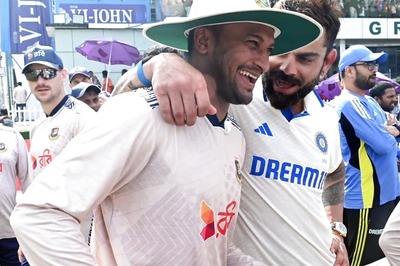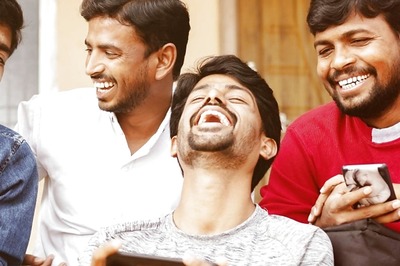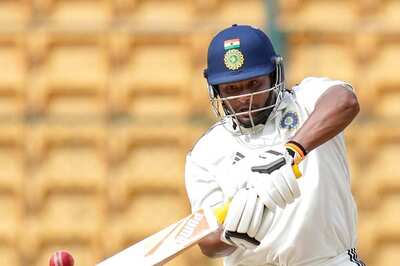
views
CHENNAI: August and September are the months when the human eye gets all the focus. Labelled the eye donation awareness fortnight, institutions across the city compete with each other between August 24 and September 8 in organising campaigns to raise awareness about corneal donation and the noble act of giving another person vision.While the rate of eye donations have certainly improved, with several eye banks in the city getting a pair of cornea every day compared to only two every week five years ago, the gap between demand and supply of corneas remains high. Experts cite many reasons for the shortage.First and foremost, many believe that such campaigns stop at just conducting rallies and human chains and fail to follow up with those who participated.According to Dr K Vasantha, Director and Superintendent at the Egmore Government Eye Hospital, “less than one per cent” of those who pledge their eyes end up actually donating it. While the hospital received 480 cornea donations in 2010, the numbers have been disappointing this year and might come down to about 400.Often, relatives of the person who had pledged his or her eyes are unaware of the act and fail to call up the eye bank after the person is dead. Even in many instances where the relatives have knowledge about the pledging, grief and the trauma of losing a relative often makes them forget.Dr Mohan Rajan of the Rajan Eye Care Hospital says that currently, the number of people estimated to be afflicted with blindness is around 20 million in the country. Of these, about 2.5 million are corneal blindness.“It is to eradicate blindness of this 2.5 million that eye donations are necessary,” he says, adding that among this number, 60 per cent are below the age of 12 and improved number of eye donations would go a long way in ridding the country of child blindness.Explaining the working of the eye and several misconceptions about eye transplants, Rajan says that not all types of blindness can be overcome by transplants. Comparing the eye to a watch, he says that the cornea is like the glass covering the dial and the machine. If there is a problem with the glass, it can be replaced with a new one and the working of the watch can be restored fully.“If the machine itself has a flaw, changing the glass will not have any effect,” he says. Likewise, if the blindness was owing to problems with other parts of the eye, corneal transplant cannot restore vision.Religion and social customs also play an important role in the unwillingness of people to donate their eyes. For example, doctors cite the widespread misconception among members of the Muslim community, a majority of whom resist giving the cornea of the dead.Dr Ahmed Katatbeh, a ophthalmologist from Jordan and a practising Muslim, who is currently in Chennai for training, says that such a notion is ill-founded. “Islam encourages people to be useful to others and eye donation is certainly in line with such a belief, he says.Importantly, even if people do not wish to donate the entire eye, the medical teams are now equipped to remove only the cornea and leave the other parts of the eye intact.Also, experts hope that the government will allow eye banks to remove corneas from accident victims as most of such persons are young and the corneas will be of good quality. This will certainly help improve the supply.




















Comments
0 comment